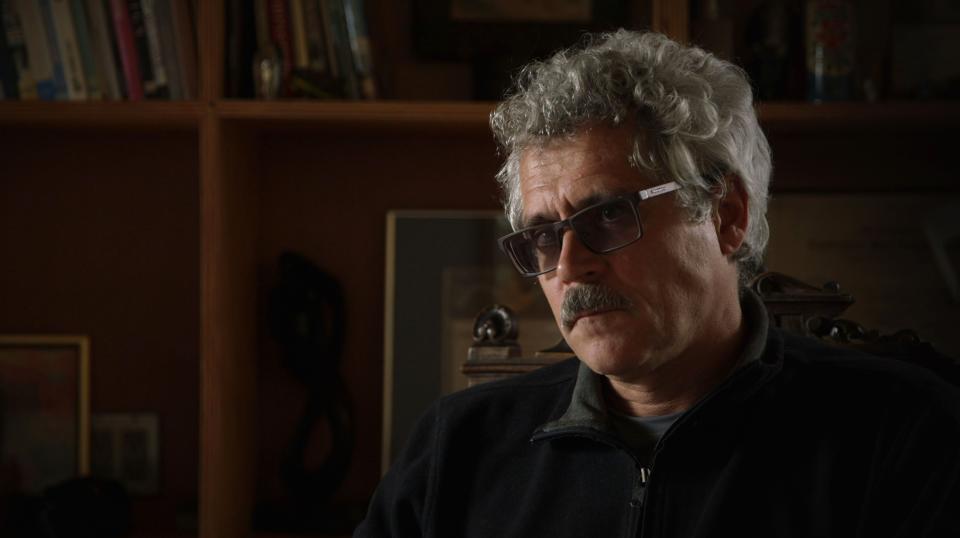Apology comes from Russian doping whistleblower, not Putin

After years of investigations, allegations and a full-on ban from the International Olympic Committee, the world has finally been issued an apology.
It just didn’t come from Russian President Vladimir Putin himself.
“I am very sorry to all the clean athletes we cheated,” former Russian anti-doping laboratory director Grigory Rodchenkov told the Associated Press on Friday through his lawyer.
Rodchenkov, who made allegations of Russian state-sponsored doping after the Sochi Winter Olympics in 2014, has been on the run in the United States ever since.
Rodchenkov described a doping scheme at the Sochi Olympics where urine was swapped out of “supposedly tamper-proof sample bottles” in a method he said was run by Russia’s security service, the FSB.
“Clean urine was collected over a long period, since 2013,” Rodchenkov said. “It was stored at Sochi by the FSB. Athletes, their coaches or someone in their entourage was responsible for getting the DCFs [doping control forms] to my office. It ran like clockwork.”
Rodchenkov’s allegations led to a total-Russian ban in the 2018 Winter Olympics — though the IOC later allowed 168 athletes who passed their vetting process to compete in the PyeongChang games as “Olympic Athletes from Russia.”
Rodchenkov isn’t happy with that ruling, saying Russia has done nothing to acknowledge its guilt. He also claims, via the Associated Press, that “Russian athletes were absolutely aware of doping program and followed strict orders from their authorities,” and that “none of the protected athletes are innocent.”

“Russia is not compliant with the WADA code and the roadmap [to regain compliance],” Rodchenkov said. “That is a more fundamental problem. Russia is not cooperating. They are lying and denying. Until this changes, their Olympic Committee should not be back in the Games.”
He is also critical of the Court of Arbitration for Sport’s ruling last month, overturning the disqualification of 28 Russian athletes from the 2014 Olympics due to insufficient evidence of an anti-doping violation.
“The CAS decision for the 39 athletes was unacceptable,” Rodchenkov said. “The standard for evidence was too high. And CAS should have considered all the evidence Russia withheld from the IOC and WADA, which would only further confirm their guilt. This process sends a clear message to clean athletes, who also deserved due process: we don’t care about you.”
Rodchenkov has been on the run since coming to the United States in 2015, claiming that his “life is in jeopardy” and that “The Kremlin wants me to stop talking.” Putin has repeatedly denied Russia’s involvement in doping, and that Rodchenkov’s evidence against Russian athletes was faked.
“(The United States has] got this jerk, Rodchenkov,” Putin said on Jan. 30. “Everything is based on the statements by this man who can hardly be trusted in anyway.”
Rodchenkov, though, stands by his claims. He told the AP he is “speaking the truth,” and that “no one is influencing me.”
“I am not a liar,” Rodchenkov said on CBS’s 60 Minutes on Feb. 12. “I was not telling the truth in Russia, but since coming to United States I am telling the truth now.”
Though they aren’t officially competing at the 2018 games, Russia’s presence is still certainly felt in South Korea. During the Olympic Athletes from Russia’s men’s hockey game against Slovenia on Friday, fans were seen displaying banners with pro-Russian slogans and praising Putin himself.
A 20-foot banner with Putin’s face on it had the inscription “no one is stronger than Russia in winter sports” at the game, something the Olympic officials didn’t like. Both that banner and another were removed from the rink.
Russian fans have been spotted all over the games, seen with Russian flags and even spelling out “#RussiaInMyHeart” during multiple events.
More from Yahoo Sports:
• USA on pace for worst Winter Olympics medal output in two decades
• Vonn dedicates Olympic race to late grandfather
• Fans unfurl Putin banners at Russian Olympic hockey game
• Mexico’s German Madrazo just delivered the most dramatic last-place finish of all-time
• Photos: Olympic figure skaters with and without competition makeup

